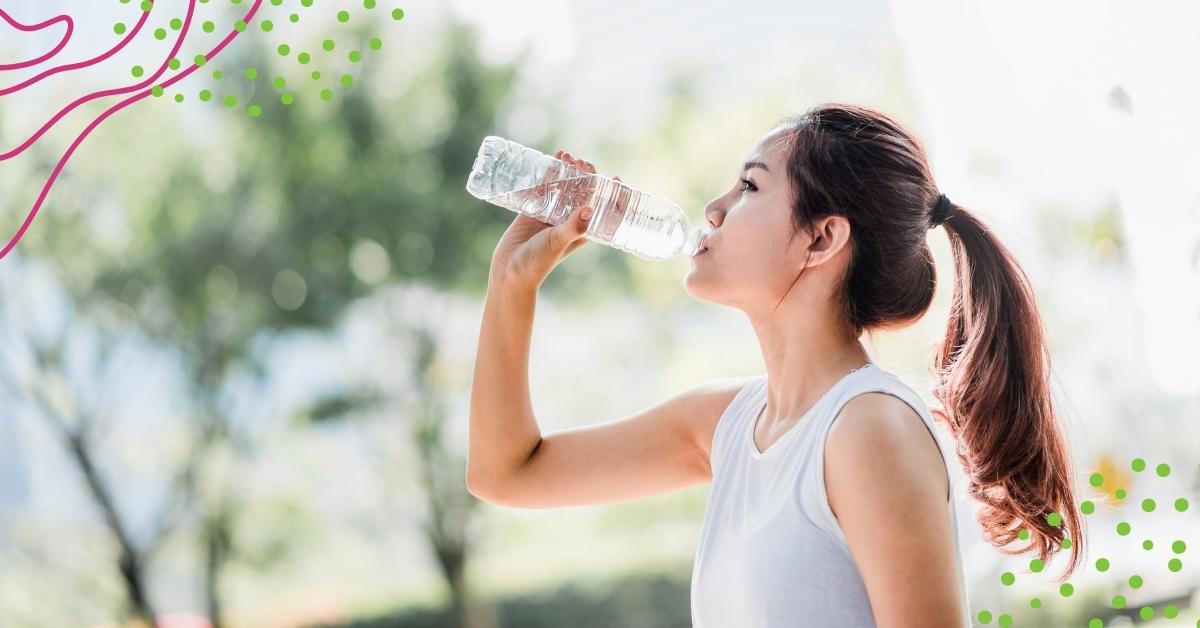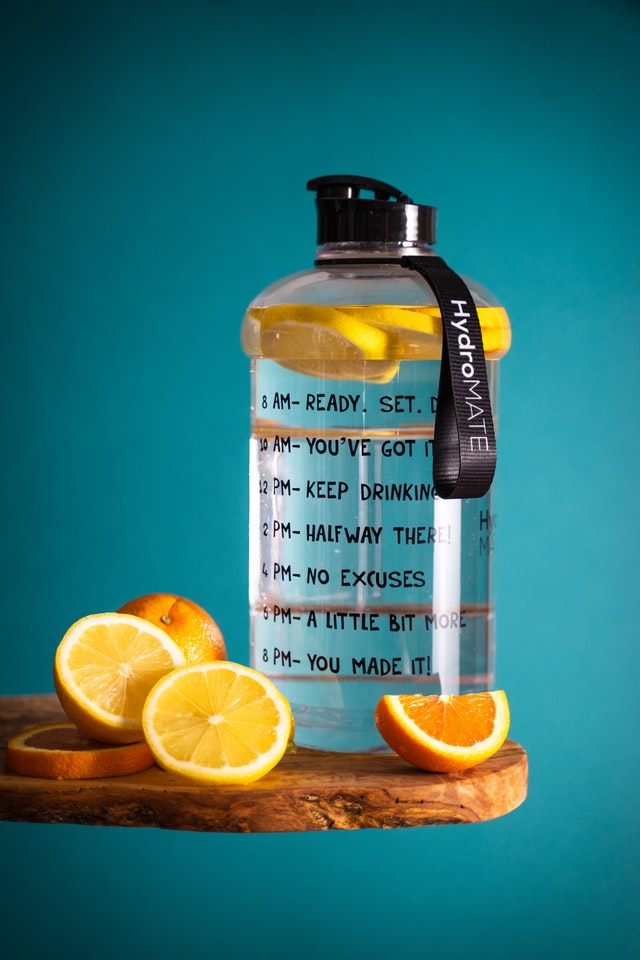There’s a good chance that you’re already dehydrated if water is on your mind. The good news is that increasing hydration levels is one of the easiest ways to change how you feel. It can even help you to look better, reach your health goals, and protect your brain against cognitive decline as you age. Yes, “simple” water really can do all that.
While most of us know that we need water to be healthy, a shocking number of people still allow themselves to become dehydrated. What’s even more shocking is that many people don’t recognize the signs of dehydration. This means they’re walking around feeling tired, sluggish, and weak without realizing that they don’t need to feel this way.
Have you ever wondered what not drinking enough water does to your body and brain?
Check out some facts that will inspire you to start counting every sip on your way to better health.
Shocking Fact: It Only Takes Two Hours to Feel the Effects of Dehydration
Don’t be so sure that your body is all set just because you chugged water a few hours before starting a workout. New research reveals that we can become dangerously dehydrated in just two hours! A study released by the Georgia Institute of Technology in Atlanta in 2022 found that just two hours of vigorous activity in the heat without drinking fluids or eating can significantly affect concentration.
The Symptoms of Dehydration
Could your general feelings of malaise and tiredness actually be caused by dehydration? It’s not out of the realm of possibility. That’s because dehydration produces a wide range of symptoms. While some symptoms are felt immediately, others take long-term tolls on your health. Here’s a look at the common symptoms of dehydration:
- Feeling Thirsty: Yes, you’re already dehydrated if you feel thirsty. The goal when staying hydrated is to stay ahead of thirst cues.
- Dark, strong-smelling Urine: Urine that’s a dark-yellow color is a sign that you’re dehydrated. Clear, odor-free urine is a sign that you’re properly hydrated.
- Feeling Dizzy or Lightheaded: Feeling weak is a telltale sign of dehydration. Not every case of dizziness is due to dehydration. However, seeking help is essential if you feel you are about to pass out.
- Tiredness: It’s common to feel exhausted when you’re dehydrated.
- Dry Mouth/Cotton Mouth: Is your tongue feeling a little cottony? It’s a sign that you’re dehydrated to help restore saliva production in your mouth.
- Dry Lips and Eyes: Your body is probably telling you it’s running out of moisture if you feel dryness on your lips and eyes.
- Headaches: It’s very common to get a headache from dehydration. One of the best ways to test if your chronic headaches could be caused by dehydration is to see if your headache goes away after you drink a large glass of water.
- Constipation: Dehydration is a common cause of constipation that few people know about. If the water receptors in your colon cannot pull water from the body, you end up with hard, dry stools.
- Lackluster Skin: All the facial creams in the world can’t hydrate your skin from the inside. You may be dehydrated if you’re suffering from dry, dull skin. Many people find that radiance, plumpness, and elasticity begin to return once they get more consistent with water intake.
- Brain Fog: If you’re constantly feeling confused and unfocused, a lack of water could be to blame.
- Weight Gain: Yes, chronic dehydration can lead to weight gain. The most straightforward reason behind this is that people often mistake thirst cues for hunger cues! This means that they reach for snacks when their body actually needs water. Research shows that increased hydration is associated with weight loss.
Many people stay chronically dehydrated for so long that they think these symptoms are part of their “normal” life experience. While the answer isn’t always as simple as just drinking more water, the truth is that improving hydration is a great place to start. The importance of staying hydrated doesn’t just come down to feeling better at the moment. Chronic dehydration can have severe consequences for a person’s health and well-being.
What Are the Long-Term Effects of Not Drinking Enough Water?
Your brain and body crave water. In fact, you may be living at much less than full speed if you’re not getting your full water intake daily. Let’s not forget that the human brain comprises 73% water. One study found that dehydration following exercise impaired both mood and concentration. Another study found that dehydration was detrimental to working memory. It also left people with feelings of anxiety and fatigue.
People perform at reduced capacity when they’re dehydrated. They also feel worse. While this information should be enough to inspire anyone to want to focus on drinking more water, the stakes go much higher. It turns out that chronic dehydration can cause brain cells to shrink! While this won’t happen overnight, it’s common in older adults living with prolonged dehydration.
People who aren’t drinking enough water often live for years in a constant state of brain fog that makes it difficult to achieve focus, concentration, and mental clarity. This ultimately creates a situation where brain cells are negatively affected irreversibly.
Not Drinking Enough Water Can Hurt Your Immune System
You may already know that not drinking enough water can cause headaches, sluggishness, and weight gain. However, there’s an even more significant risk of staying dehydrated. Hydration is critical for a healthy immune system. The immune system is highly dependent on the nutrients in our bloodstream. As you may already know, the human bloodstream consists mainly of water. When the body lacks the proper amount of water, it becomes difficult for the bloodstream to properly transport nutrients to organs and tissue. This is actually why muscle cramping is so common when we’re dehydrated. However, a lack of water makes it impossible for the bloodstream to clear out detoxification pathways tied to lymphatic draining. That means that waste materials and dangerous invaders aren’t cleared out. Yes, that means that the immune system can become compromised over time.
Pursuing a More Hydrated Way of Life: How Can You Remember to Drink More Water?
Don’t forget that much of the daily hydration that the human body needs can come from foods. A person who consumes lots of fruits and vegetables with high water content will naturally consume more water without necessarily drinking more. In addition, teas, smoothies, and fresh-pressed juices can also provide extra hydration. The real trick is that you may not have to drink more water to stay hydrated.
It’s still important to focus on drinking enough water even if your diet contains lots of “watery” foods. The amount of water needed daily for good health can vary. Most adults need between 11.5 and 15.5 cups per day to stay healthy. While a person eating a balanced diet can expect about 20% of that water to come from the foods they eat, there’s simply no way around the fact that you’ll need to sip water throughout the day. A person who exercises will almost always need more water than the “average” person. Here are some tips for drinking more water:
- Start your day with a full glass of water within minutes of waking up. Cold water in the morning can boost your alertness level!
- Download an app that reminds you to take sips.
- Buy several refillable water bottles that you can leave at home, at work, or in the car to ensure that you never get stuck without a way to drink water.
- Drink a full glass of water with each meal.
- Drink a full glass of water after every bathroom break.
The bottom line is that you never want to wait until you get thirsty to drink water! You’re already dehydrated if you’re feeling thirsty. That means you’re already on your way to headaches, muscle cramps, fatigue, decreased mood, lack of focus, and potential long-term cognitive impairment. Make hydration a part of your overall healthy meal plan to live the vibrant life you want to live!







